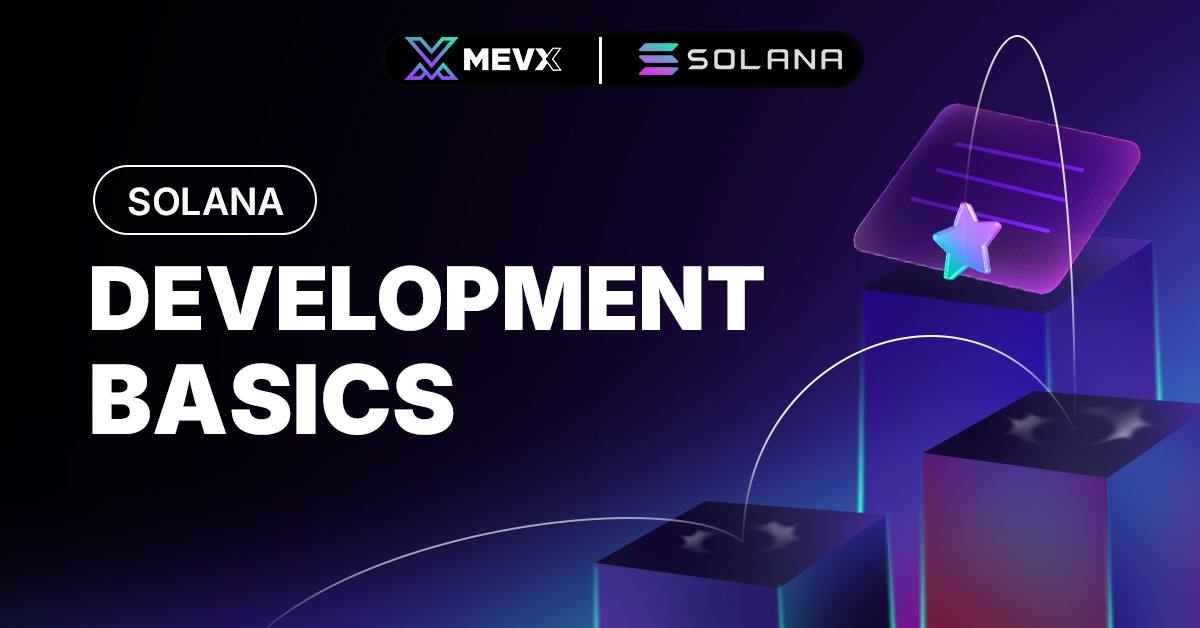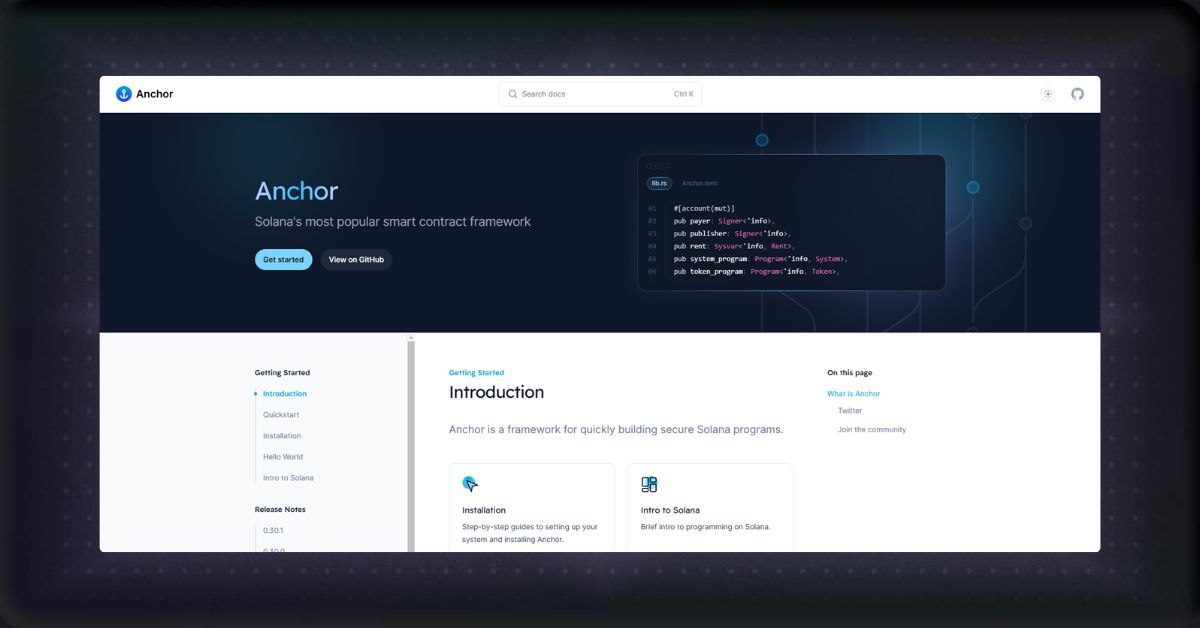Main Takeaways
- This article discusses the primary areas in Solana’s development.
- We also provide the tools you need to start developing on Solana.

Solana Development Basics
Introduction
Solana is an ideal platform for developers due to its great performance and outstanding scalability. In this article, we will cover the basics of developing your first smart contract, known as a “program” in the Solana ecosystem. You can read more about Solana’s programs in our “Smart Contracts on Solana” article.
Getting Started with Solana Development
When developing on Solana, you will work on two primary areas:
- On-chain Program Development: This is where you create your custom programs and deploy them on the blockchain. You can write these programs in Rust, C, or C++. We recommend using Rust as it is widely used and supports most on-chain program development.
- Client Development: To allow users to interact with your on-chain programs, you need to write dApps (decentralized applications). Users will interact with your dApps, and these dApps will submit transactions to on-chain programs. You can write client development in any programming language.
Your programs and dApps are connected via the Solana JSON RPC API. Your clients send RPC (Remote Procedure Call) requests to the Solana network to interact with on-chain programs. You might understand the Solana JSON RPC API as the middleman between dApps and programs.
Tools You Need to Start
Before you begin writing smart contracts on Solana, here’s what you’ll need:
- Rust: If you want to delve into on-chain development, you should learn Rust. You can install Rust by entering this command into your terminal:
curl –proto ‘=https’ –tlsv1.2 -sSf https://sh.rustup.rs | sh
- Solana CLI: You will need Solana CLI (command-line interface) to interact with the blockchain and deploy programs. To install Solana CLI, you can run the command:
sh -c “$(curl -sSfL https://release.anza.xyz/stable/install)”
- Anchor Framework (Optional): Anchor provides you with a framework that makes it easier to build on Solana. You can think it’s like building your website with a theme instead of raw Javascript and HTML. You can visit Anchor’s website to learn more about it.

- RPC: You will need an RPC to interact with a network. You can either rent an RPC from an infrastructure provider or run your own RPC node.
Development Environments on Solana
Solana offers three network environments to facilitate development:
- Mainnet Beta: The production network where all real transactions occur.
- Devnet: A test network where you can test your programs without risking real assets.
- Local Validator: A personal network you can run on your machine to test programs.
Final Thoughts
Writing smart contracts (programs) on Solana is a rewarding experience that opens up possibilities in decentralized finance, NFTs, and more. Whether you’re writing raw Rust or using a framework like Anchor, the Solana ecosystem offers the tools and infrastructure to build fast, scalable blockchain applications.
Share on Social Media:
